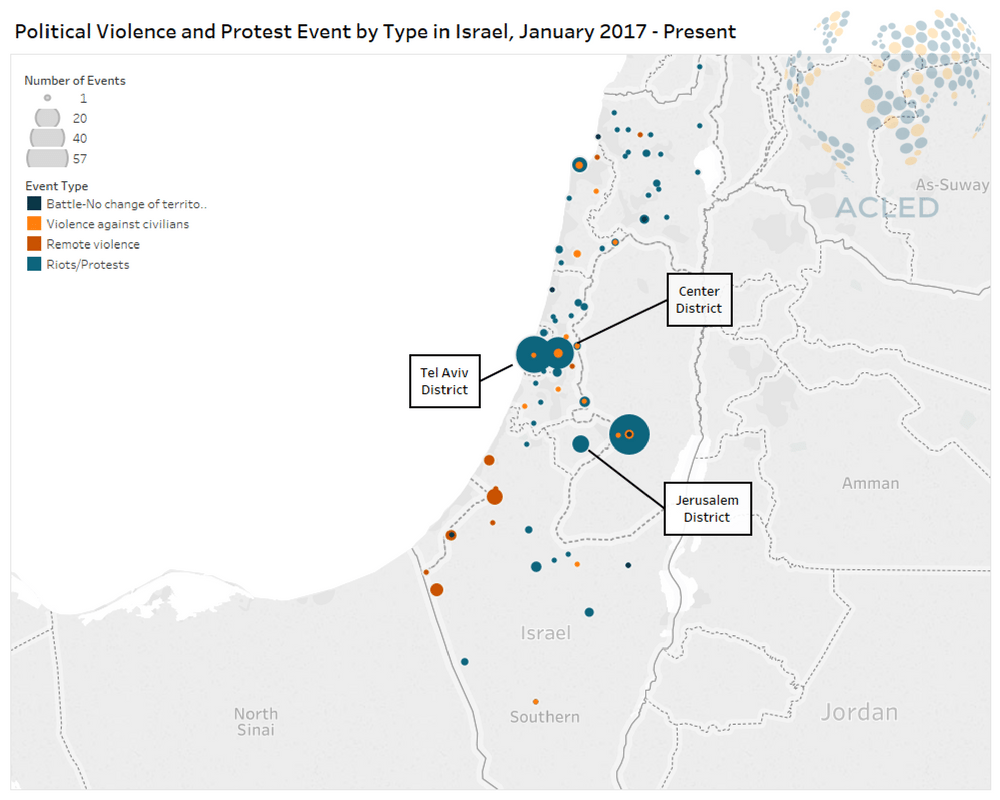Of all regions in Israel, Jerusalem district* is the most active site for political violence and protest events in the country. One major contributing factor to this is due to the frequency of anti-draft protest activity by Haredi (Orthodox Jewish) groups in the area. Urban areas generally have the highest levels of protest activity, yet Jerusalem outweighs Tel Aviv in total number of events. In Jerusalem’s case, roughly 90% of the events in the area are riots or protests, with Haredi groups being involved in about half of these, with their primary concern being Israel’s policy of mandatory conscription.
Throughout 2017, there were frequent protests by Haredi groups denouncing mandatory military conscription. In Israel all citizens over the age of 18 are required to serve in the Israeli military with the exception of Arab citizens of Israel. There are limited exemptions on religious grounds, issues relating to mental and physical health, or for those who have a criminal record. Haredi Jews who are attending Yeshiva (traditional religious school) typically are able to defer military study, often resulting in de facto exemption. However, sometimes young Haredi men attending these schools are arrested for not reporting for military service. These arrests are often are the catalyst for protests, in some cases resulting in clashes with police and further arrests.
In September 2017, the Supreme Court of Israel ruled the blanket exception of Yeshiva students from the draft to be unconstitutional (New York Times, September 12, 2017) sparking widespread protests over the subsequent months. These protests are likely to continue if the government is unable to find a resolution to this issue.
(*In this piece, Jerusalem district does not include East Jerusalem)







